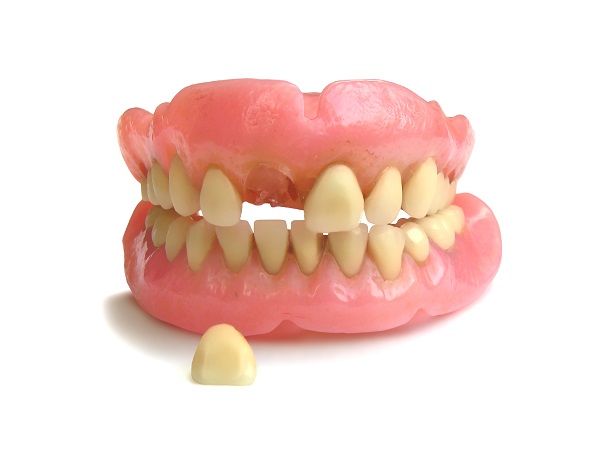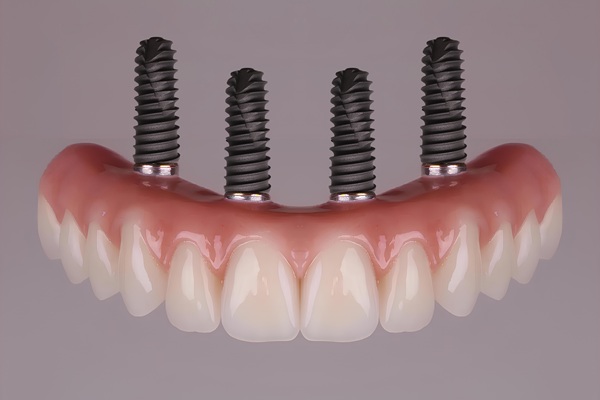Options for Replacing a Missing Tooth

Suffering from a missing tooth? As uncommon as it may sound, a lot of people actually experience tooth loss at one point or another, whether it be a result of decay, accident or injury. Thankfully, there are a good amount of replacement options that dentists can present to patients. For the longest time, dentures were the only option; however, modern-day dentistry has allowed for the evolution of dental technology, thus providing patients with very different options to choose from. Keep reading to find out more!
Missing tooth replacement options
Outlined below are a few replacement options that patients with a missing tooth can consider.
Dental implant
One of the most common ways to replace a missing tooth is with a dental implant. Over the last few years, dental implants have really grown in popularity, especially when replacing a single missing tooth. They are reliable, natural-looking and are very helpful as it relates to restoring oral health.
Unlike other missing tooth replacement options, dental implants restore the actual bone that lies beneath the space where the tooth once was. The implant itself acts as the tooth's roots, which undergoes osseointegration, thus fusing with the bone, while also attaching to an abutment and artificial tooth. In the scenario of a single missing tooth, the artificial tooth will likely be a dental crown made of porcelain materials.
Bridge
Another replacement option for a missing tooth is a dental bridge. Dental bridges are less invasive than dental implant placement; however, they do successfully replace a missing tooth by bridging the empty gap that is left between the two existing teeth. Dental bridges also work directly with dental crowns, which appear both natural and white in color. Unlike dental implants, bridges do not require as much of a time commitment or healing process.
Partial denture
A partial denture is another replacement option that patients can consider after tooth loss. However, they are typically recommended when there is more than one missing tooth grouped together. Partial dentures are less bulky than traditional ones; however, they do require a period of adjustment, especially if they are removable instead of fixed.
On the other hand, some partial dentures can be fixed in place by connecting them to a dental implant. This makes the partial denture much more secure and stable within the oral cavity, thus ensuring efficient eating, smiling and speaking. A partial denture combined with dental implants is a great hybrid option that can successfully replace missing teeth.
Find out more from a general dentist
When looking for more information on replacing a missing tooth, it is best to consult directly with a general dentist. The dentist can perform an evaluation to identify the best place to start. Additionally, patients can ask questions about the different replacement options, which can be helpful when navigating through the decision-making process. Reach out today to learn more or to get yourself scheduled for a consultation appointment.
Request an appointment here: https://www.leixdental.com or call Leix Dental at (815) 604-6104 for an appointment in our Lakewood office.
Check out what others are saying about our dental services on Yelp: Missing Teeth in Lakewood, IL.
Recent Posts
All-on-4® is an option for people who need to replace an entire upper or lower arch of their teeth. For many people, this is the solution that they have been waiting for. Because it works as a dental implant that creates an anchor for prosthetic teeth, it means that these restorations do not shift around…
When searching for a dentist near me, it is important to find someone who provides excellent care and makes every visit a positive experience. A great dentist combines skill, modern tools, and a patient-focused approach to help maintain and improve your oral health. Whether you need a routine checkup or a more complex procedure, choosing…
Periodontics is a branch of dentistry that focuses on studying, diagnosing, and treating issues that affect the gums and the bone structures that support teeth. Periodontal disease is the leading dental problem that periodontics focuses on.Periodontal disease is an infection of gum tissues caused by the bacteria in plaque and tartar getting below the gum…
Oral cancer screenings are recommended to patients who are at a higher risk of the disease. While it is not always necessary, most dentists recommend regular oral cancer screenings to ensure any concerning signs are detected as early as possible for the most effective treatment possible. Although many people have heard about oral cancer, all too…


